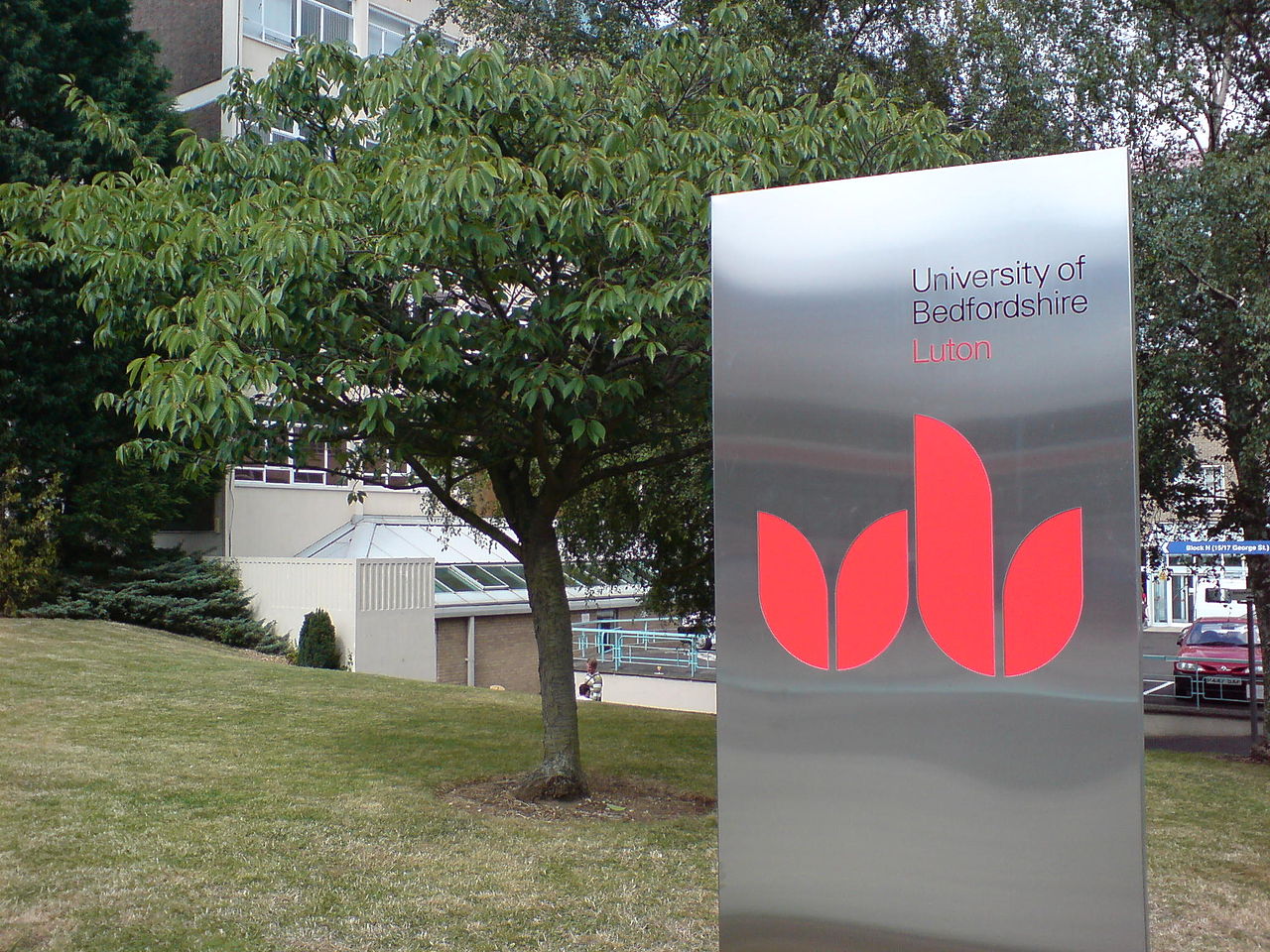
Are there too many students? Almost half of young people now go to universities which spawn dumbed down degrees that equip graduates for nothing in life.
The helter-skelter expansion of higher education in the past 30 years is probably the single most profound change to British society in my lifetime. Around two-thirds of our current universities have opened in that period as the proportion of young people going to university has increased from 15 to nearly 50 per cent. Like most big and rapid changes, this transition from higher education for an elite to higher education for the masses has both its blessings and drawbacks.
The move away from an industrial economy and the increase in administrative and graduate-only occupations is one obvious consequence of the expansion. The school system has also become more overtly focused on directing pupils into full-time academic study, while other forms of technical and vocational education, both at school and post-school, have struggled.
Less quantifiable are the political and cultural changes. The last election might have been the first in which the ‘university seats’ made a significant difference — there are now so many universities that almost 20 per cent of political constituencies have a substantial university-related vote.
The growth of the graduate population is also closely linked to a trend towards individuals becoming more liberal. Leaving home and spending several years among people of different backgrounds tends to make you more comfortable with social change and less concerned with loyalty, tradition and group attachment — the values of small-c conservatism.
Surely this has contributed to the sharpness of divisions in society, revealed by support for Brexit among traditionalists on the one hand, and fierce concern about equalities, human rights and identity politics among Britain’s graduate class on the other.
Openness, individual autonomy and internationalism are key values in modern universities, yet are often viewed with suspicion by ordinary voters. Indeed, the roots of the Brexit vote can be found in the sense of alienation felt by these ordinary voters, caused by what I term the ‘two masses’ — mass immigration and mass higher education. The former has increased competition for jobs and public services, while the latter has surely contributed to the declining status of non-graduate employment.

Oxford University. Britain has expanded its higher education system with little differentiation
For those who don’t go to university, there is a big psychological difference between seeing 15-20 per cent of your schoolmates attending and 50 per cent going. Yet some experts and policy makers such as David Willetts, who was Minister for Universities and Science in the coalition government, want to send even more people to university. In his recent book, Willetts extols the benefits of mass higher education. He argues that we should be sending 70 or even 80 per cent of school leavers to university, as is the case in Finland, Sweden and South Korea.
But to expand Britain’s version of higher education in that manner surely fails to take into account both the variety of aptitudes — whether academic or practical — in the population, and the variety of needs of the modern economy. It is true, of course, that all developed countries have hugely expanded post-school and university education in recent decades. But Britain has done so with much less differentiation within higher education than other countries: it has simply expanded the form and ethos of universities that already existed.
Consider the ancient spires of Oxford and the University of Bedfordshire, a new university. In both places what is offered is essentially the same — a three-year academic degree usually focused on developing analytical skills. The course will be taught by academics who see research as their primary interest. And the students will, in the main, leave home to board at the university. This is unlike most students in Europe and the U.S. who tend to go to college in their home town.
Willetts regards the residential system and the focus on research as strengths of our system. In his book, he defends his own recent reforms, including the increase in tuition fees to £9,000 a year and the removal of any limit on the number of students who can go to university. But he happily turns a blind eye to other obvious problems caused by the expansion, such as dumbing down. Not only has there been a 40 per cent increase in the proportion of students getting a first in the past five years — a result of turning them into fee-paying consumers, perhaps — but there is now effectively no entry requirements at all in some of the new universities. And how do we know that all this ‘world-class research’ Willetts describes at universities is in fact world-class?
In the one corner of the humanities that I know something about — immigration, race, multiculturalism — much of the academic research is barely disguised political advocacy. Education departments are often very ideological, too. But the real problem with those who are cheerleaders for the current configuration of higher education is that they tend to see it as operating in a vacuum. They seem blind to the impact rapid university expansion has had on the rest of post-school education. It has almost wiped out sub-degree technical education and eclipsed higher-level vocational education.
All the prestige and financial incentives point in one direction, from the schools, that are now judged on how many people they can send to good universities, to the universities’ bottomless funding system. This is backed by the Student Loans Company and the simple Universities and Colleges Admissions Service portal, which give easy access to a national system of university education.

University of Bedfordshire. The expansion of the university sector has wiped out technical education and eclipsed higher-level vocational education
As Professor Alison Wolf of King’s College London, who specialises in the relationship between education and the labour market, puts it: ‘In post-19 education, we are producing vanishingly small numbers of higher technician-level qualifications, while massively increasing the output of generalist bachelors’ degrees and low-level vocational qualifications.’
In 2016, 332,000 people got a generalist first degree and just 6,000 completed a higher technical Higher National Diploma (HND) or Certificate (HNC). No wonder employers complain about skill shortages and hire people from abroad. The adult skills budget, covering all non-university post-school education, has been in freefall.
Further education colleges which were once closely connected to local employers now do mainly remedial classroom teaching for 16- to 18-year-olds. They also commomly offer multi-purpose community provision, teaching English to immigrants, for example.
University expansion has almost certainly diverted some students away from science, technology, engineering and mathematics (STEM) and technical courses into business, arts and social science degrees. Prior to 1992, STEM subjects would have been done at one of the 35 polytechnics that then existed, which focused on technical education.
Claims for the economic success of the current university model do not stack up, either. One third of recent graduates are in non-graduate jobs and the premium that graduates get in pay is falling.
Willetts’s claims that graduates are good for Britain’s productivity and exports ring hollow given the nation’s weaknesses in both those areas. It turns out that just creating lots of graduates who did the courses they fancied at 18 does not magically lead to a high-productivity economy.
Of course, every parent wants their child to go to university: it signifies security and status and joining the middle class. And vocational education will never compete with the high road of A-levels and a prestigious academic university course. At university, students mingle with the next generation of managers and professionals.
But combining an economic growth model in a Britain based around high employment rates and high immigration — where firms expect to able to hire and fire easily — with generalist academic training for as many people as possible, is lopsided socially and economically. The fact is that 40 per cent of all new workers have studied an irrelevant subject and an increasing proportion of graduates have poor basic skills. Despite the rigidity of the company-based vocational training system that is so typical in Germany, for example, it helps to motivate the bottom 50 per cent of pupils in the schooling system — those who tend not to go on to university. The better they do, the better the apprenticeship scheme they can join.
In Britain, by contrast, if you don’t make the cut to do A-levels — and it is usually pretty clear if you will by the age of 13 or 14 — the post-school education system has little to offer.
When he was an adviser to the Thatcher government of the early Eighties, Willetts himself was instrumental in destroying the old craft-based, union-dominated apprenticeship system. But none of the mainly state-funded replacements has ever really worked and the gulf in status between vocational and academic post-school education has widened.
It is not clear if the new initiatives of T-level technical qualifications at schools (will any of the bright kids do them, I wonder?) and an apprenticeship levy will change anything.
We often congratulate ourselves on having become a less class-bound society in recent decades. There is some truth in that, but the debate about post-school education remains haunted by class guilt and accusations of snobbery.
David Willetts, and others who have shaped policy, are so keen to not kick away the ladder and deny others some version of their own experience — grammar school and an Oxford degree in politics, philosophy and economics for Willetts — that they commit the equal and opposite sin of saying that their experience, or an inferior version of it, should be good for almost everyone. The result is a cluster of institutions that proudly bear the title of university, yet are condemned to permanent second-class status compared with the universities which truly do ‘world-class research’.
Many of them do important work, much of it in professional vocational areas such as nursing, law, pharmacy and surveying. Some offer recently introduced degree apprenticeships which combine on-the-job training with degrees. So why are they forced to compete in the same league as the top tier, where they are judged by academic research standards they will never excel in? They could be in a different league, where they are judged on what they actually do. Yet any suggestion that the new universities should be called something else to illustrate their different and less academic courses usually attracts howls of anger and complaints about demotion in status.
More mildly, John Raftery, Vice Chancellor of London Metropolitan University, describes the problem — with the help of a military metaphor — as how to avoid ‘tearing off the epaulettes’. But this is not about titles. It is about what institutions do. And it is clear that we have a gaping hole between research-led, academic universities and further education colleges.
A British version of the German Fachhochschule or the American community colleges — both predominantly technical institutions — is needed to fill the big intermediate skills gap. They should be able to offer two-year courses with a practical rather than academic focus, run by teachers, not academics. If students on sub-degree technical courses develop a more academic aptitude, they should be allowed to switch to a full degree course in the same institution or a different one.
To sidestep the status-ridden debate about titles, we could just call all institutions providing any kind of post-school education a university or a college. All of them, including further education colleges, could perhaps come under the umbrella of a fully-fledged university, too.
Of course it must be said that our great universities are a national asset that, despite hand-wringing about visa restrictions and counting students as immigrants, attract a rising number of international students (though internationalisation can go too far). Yet expansion has amplified society’s value divisions, weakened our vocational skill base and probably done little for what Christopher Lasch, the American historian and moralist, called ‘the general competence of society’. (About 20 per cent of pupils still leave school more or less illiterate and innumerate).
People in the bottom half of society do not need ‘rescuing’ by spending three years at a new university. They need a better basic academic school education than most of them are getting now, and then a choice of a good non-academic vocational or technical education, or a university. Ideally both would offer a residential and stay-at-home option.
For years, mass higher education has reinforced the general trend towards elevating cognitive or academic ability as the gold standard of human esteem. This may now be correcting itself as dissatisfaction with some of the lower-status universities grows. Men who graduated from the 23 lowest-performing British universities went on to earn less than those who did not go at all, according to Barnaby Lenon, a former headmaster of Harrow School, in his forthcoming book Other People’s Children.
Moreover, the combination of artificial intelligence replacing a range of middling cognitive jobs, an ageing society, and a reduction in immigration after Brexit, might force us to again place more value on many essential caring and manual or technical occupations.
Over-expansion of the university sector has damaged the ‘status balance’ of society. It is true that three years away at university discovering oneself and the world can be a positive, life-changing experience. It was for me, but it isn’t for everyone, and it is certainly not the only route to a happy and successful life — or the best route to a thriving economy.
Source: David Goodhart
dailymail.co.uk
Adapted from an article in Standpoint magazine



 Skype
Skype Messenger
Messenger Viber
Viber Contact form
Contact form





